10 dates and 35 years later, UK alums reflect on love, illness and caregiving
Video produced by UK Public Relations and Strategic Communications. To view captions for this video, push play and click on the CC icon in the bottom right-hand corner of the screen. If using a mobile device, click on the gear icon in the same area.
LEXINGTON, Ky. (Feb. 14, 2025) — It seems like foreshadowing that they met while playing the board game Life. Marietta Barton was 19 years old; Jeff Baxter was 21. Despite both growing up in London, Kentucky, they never crossed paths until they moved to Lexington for college. But within a few weeks of their chance meeting, they were in love — and engaged.
Now, 35 years into their marriage, Jeff has published a book chronicling their whirlwind romance, the life-altering health struggles they faced soon after, and their enduring commitment to one another.
He originally wrote the book, “Ten Dates Later: The Story of an MS Caregiver,” as a surprise gift for Marietta (now Barton-Baxter) in 2023. But after sharing the text with a few friends, they were encouraged to publish it to help others facing the challenges of chronic illness and caregiving. They also decided to donate the proceeds from the book to multiple sclerosis research at the University of Kentucky, where they both earned their degrees and where Marietta has worked in health research for 37 years. She currently serves as the regulatory program director and biobank project director in the Center for Clinical and Translational Science. Jeff recently retired after serving for 28 years as a physical education teacher in the Fayette County Public Schools.
The first 10 dates
It was the fall of 1988. Marietta was a sophomore at UK, hoping to become a pharmacist; Jeff was in his first semester at Lexington Community College. He was annoyed to come home from studying one night and find that his roommates had invited girls to hang out at the apartment without letting him know. He tried to quietly sneak into his bedroom while his roommates and the three girls socialized in the living room, but they convinced him to join them for a board game. That’s when he saw her — “a blue-eyed beauty from my hometown whom I had never met before, named Marietta,” he writes in the book.
After the girls had gone home, Jeff’s roommate and childhood best friend, Jeff Stidham (Stid for short), delivered some news that stunned him: Marietta wanted to go out with him and hoped he’d call her.
He didn’t waste time. The next night, Marietta and Jeff found themselves on a double date with Stid and one of the other game night girls. Jeff, however, had a total of $6 to his name. He ordered the 10-cent chicken wings offered by the restaurant, hoping Marietta would do the same.
Alas, she did not. She ordered a $9 burger.
“I was now as nervous as any human had ever been,” Jeff writes in the book. “So much so, Stid picked up on my anxiety and asked to speak to me away from the table. Stid, my best pal since fourth grade, agreed to pay for the meal. As fate would have it, the burger was cooked incorrectly, and the manager took it off my bill. I have never wanted to hug a cook more in my life.”
After a few days apart for Thanksgiving Break, Jeff and Marietta went on a date every single night for the next 10 days. Cash-strapped students, they quickly fell in love over shared two-burger value meals at McDonalds or dinner in the school cafeteria with his meal card.
By the 10th day, Jeff and Marietta both knew they’d found “the one.” He cooked her a nice dinner and took her for a walk in Triangle Park, where he proposed on bended knee. She laughed at him at first, in disbelief that he’d do this after only 10 dates. But he asked again later that night, insisting that he was serious.
“It was an easy yes,” said Marietta, who after her first date with Jeff had already told her roommate that she’d found the man she’d marry. “I knew pretty much as soon as I met him. It was one of those at-first-sight things. I just knew.”
Six months later, in June of 1989, they were wed, surrounded by friends and family.
“How in the world had I convinced this girl who was miles out of my league to go out with me? Then, how on earth had she agreed to spend her life with me after such a short time?” Jeff reflects in the first chapter of the book. “We had no idea at the time, but God had a bigger plan for us that we would soon see. A plan that would test not only our marriage, but our very existence.”
‘A year of hell’
Sixteen months after their wedding, Marietta awoke one morning to find that one of her hands was numb — strange, though not immediately alarming, so she went ahead to her job at UK Family Practice. But when she mentioned the numbness to one of the doctors she worked with, they sent her for a neurology consult that same day. A barrage of tests was ordered. By the time of the testing appointments the following week, the numbness had overtaken both her arms and hands.
A year of doctor appointments, tests, and hospital stays followed. Marietta endured relapsing spells of numbness, double vision, slurred speech and inability to walk. She couldn’t read, watch TV, or carry on a conversation. Jeff had to carry her up and down the stairs to their third-floor apartment, which coincidentally was in the same complex where they’d met playing Life.
“At this point I was already different [from my peers] because I was married. And now I was really different: I couldn’t walk, I couldn’t see, I couldn’t eat,” Marietta recalled. “Jeff had to puree all my food in the blender because I would choke if I ate anything. And my speech was slurred as if I’d had a stroke. I pretty much couldn’t communicate.”
Jeff devised a system where he’d write things down so she could just point to them.
Marietta’s closest friend, Debbie, who had been there the night she and Jeff met, would come over and just sit with her. They are still the best of friends today.
“But pretty much everybody else just disappeared,” said Marietta. “No one wanted to come around because no one knew what to say. It was a very lonely time for both of us.”
Jeff, meanwhile, attempted the herculean task of staying in school, continuing his retail job, and being Marietta’s sole caregiver.
“I was working at Kmart, which was right across the road from where we lived so I could get back home really quick,” he said. “I would go in at 7 a.m., work until 10 a.m., then go to class. And on the mornings I had an 8 a.m. class, they’d let me come to work at 5 a.m., stocking shelves. I’d work two or three hours, go to class, run home to change clothes and take care of Marietta, then go back to Kmart at 5 pm until they closed. I’d come home and study until sometimes 1 or 2 in the morning, then get a two- or three-hour nap before I had to do it again the next day. I did that for three months until I was about out of my mind, and we realized we needed some help.”
Marietta’s mother moved in with them to help for three months.
Eventually, after what she describes as “a year of hell,” Marietta received a diagnosis. She had multiple sclerosis.
The only available treatment at the time was the steroid prednisone, and initially it seemed to help. For a while the young couple found a new normal amidst managing Marietta’s disease. She was able to go back to work every day. They spent the holidays in Nashville with family. But within a few months her symptoms returned, sometimes worse than ever, and new MRI scans revealed worsening plaques on her brain.
The relentless stress and suffering nearly brought Jeff and Marietta to a breaking point. They were both angry at the unfair fate of her illness. Jeff was sleep-deprived, “coming apart at the seams.” She tried to get him to leave her: “If I had known what was going to happen, I wouldn’t have married him. I wouldn’t have expected anyone to go through that. I didn’t want to burden anyone with that,” she said.
But Jeff wouldn’t budge. Finally, after an argument, he sat Marietta down and reminded her that he’d promised, in front of all their friends and family, to love her through sickness and health.
“I think we were drawn together for a purpose,” Marietta said. “I was just 19 when we met. We were still in school. Everyone thought we were crazy for getting married so fast. But I feel like there was a reason for it all, even if we didn’t know it at the time.”
A matter of the heart
In the book, Jeff recalls that things got a bit better after Marietta realized he wasn’t going anywhere. But she was still depressed. To try to cheer her up, he got Marietta a kitten. They named it Woody, after Cawood Ledford, then “The Voice of the Wildcats.” The idea seemed to work, with Marietta cheerfully doting on the new pet who followed her around the apartment. (The kitten didn’t feel quite the same about Jeff, though, who had to constantly guard against surprise attacks.) And Marietta started researching treatment options — to Jeff, this was a sign of optimism.
But another cloud was forming — this time, over Jeff. He had enrolled at the University of Kentucky to become a physical education teacher. In the spring of 1991, while playing golf for one of his classes, he became extremely dizzy and nearly passed out. When he hugged Marietta upon returning home, she immediately noticed his heart was racing. He didn’t want to go to the emergency room but agreed to see one of the doctors Marietta worked with on Monday morning. To Jeff’s surprise, the doctor discovered a heart murmur, which in turn led to a CT scan, an echocardiogram, and a consult with a cardiologist.
Jeff was only 24 years old when he learned he had a problem with his aortic valve and an aneurysm outside of his heart. Surgery, he was told, would be inevitable by the time he was 30. In the meantime, he would need scans every six months to monitor his condition.
He and Marietta hadn’t even reached their five-year wedding anniversary — or 25th birthdays — but had already been dealt two life-threatening diagnoses. Soon, Marietta had yet another MS relapse and was told by her medical team she must start on an MS treatment as soon as possible, and that she couldn’t get pregnant while on medication. This was devasting news to the young couple who very much wanted to have children. A lifelong Christian, Jeff felt his faith being shaken. This was not how he imagined their marriage, not how he imagined their 20s or the rest of their lives.
But they persevered. A new injectable drug for MS came on the market, though a scarce supply meant that interested patients had to enter a lottery for it. Luckily, Marietta’s number was soon selected, and she and Jeff learned how to inject the drug every other day. The medication worked wonders. Jeff graduated from UK and was hired as a P.E. teacher in Fayette County. Marietta also graduated from UK, and though her illness had diverted her path to pharmacy school, she quickly began building her career in health research at the university. They bought a house and found a church home. Miraculously, for nearly 20 years, Jeff’s heart scans had indicated that surgery wasn’t necessary yet. He was in his mid-40s by the time he needed the operation, which successfully repaired his heart.
“When you’re in the depths of these things, you’re questioning everything — your faith, yourself, what you’re doing,” Jeff said. “There’s a part of you that feels sorry for yourself, but you also feel angry — there’s a huge range of emotion. And you think you’re on an island by yourself, but you’re not. And it’s OK to not be OK.”
Marietta says it took her about seven years to work through all the emotions surrounding her illness. Eventually, the pharmaceutical company that made Marietta’s medication invited her and Jeff to join their speaker’s bureau. For several years, the couple traveled around the country sharing their perspectives with MS patients and their caregivers.
True blue
The University of Kentucky is a backdrop to Jeff and Marietta’s entire story: the beginning of their romance, the diagnoses and care for both their chronic conditions, their college educations, Marietta’s impactful career in research. In 2014, The UK Department of Neurology sponsored an MS Walk in Marietta’s honor.
And over the course of her 37-year career at UK, Marietta has become a pillar in the health research enterprise. She spent 17 years doing trauma critical care research, was the administrative director for both the UK Clinical Research Organization and Center for Clinical and Translational Science (CCTS) and in 2014 became the regulatory program director for the CCTS. In this role, she’s helped create (and now manages) an innovative repository of biospecimens that supports a broad range of health research at UK and elsewhere; more than 52,000 UK HealthCare patients have agreed to participate in the program. She has supported hundreds of researchers as they work to improve health for all and was deeply involved in a range of clinical trials for COVID-19.
Jeff and Marietta still love tailgating at UK football games just as they did when they were students, but now they’re joined by their entire extended family and wide circle of friends, sometimes around 100 people.
“The University of Kentucky has given me a lot of great opportunities. And we’ve been able to get top-quality health care here,” Marietta said.
Jeff’s book was a huge surprise for Marietta, who is the bookworm of the pair.
“I had zero history of writing anything other than term papers and things like that, and I’m not a huge reader,” Jeff said. “I think that’s what shocked Marietta when I came to her with the finished product.”
As a way to give back, Jeff and Marietta are donating all proceeds from his book to MS research at UK. Marietta also encourages everyone to get involved in health research.
“I think a lot of people have questions about clinical research. But the one thing that I always remind them is that if there weren't folks willing to participate in research, you wouldn't have things like antibiotics, or ibuprofen when you get a headache. [Health research] is how we shape our future of health care, and if we don't have volunteers willing to participate, then there's not going to be new treatment options for things like cancer and Alzheimer's disease. It is so important for volunteers to participate in clinical research.”
They hope that sharing their story through Jeff’s book will make the path easier for other people dealing with chronic health problems.
“It’s a book that does two things. Hopefully, it lets people know the amazing woman that's sitting next to me and how far she has come. And hopefully it spreads hope for people who go into to a neurologist’s office and hear the words ‘multiple sclerosis,’” he said. “And I hope that we’ve put the stories together in a way that not just relatable to people with MS or a heart condition — but it’s relatable to anyone struggling health-wise.”
“If even one person can benefit from what we’ve gone through, then it’s worth it,” said Marietta.
The book is available on Amazon in paperback and for Kindle.
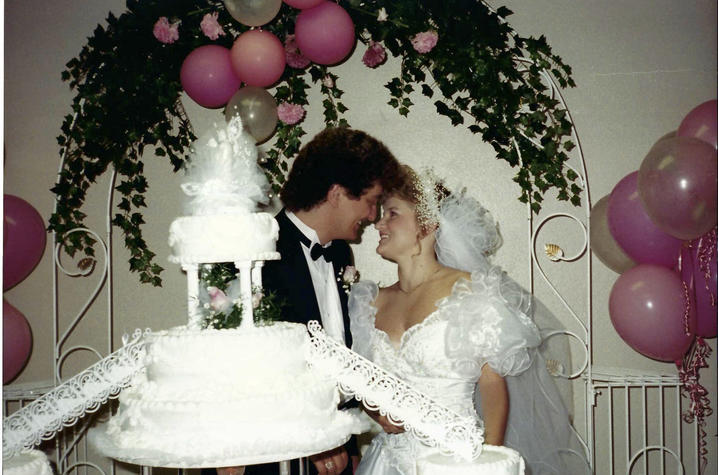

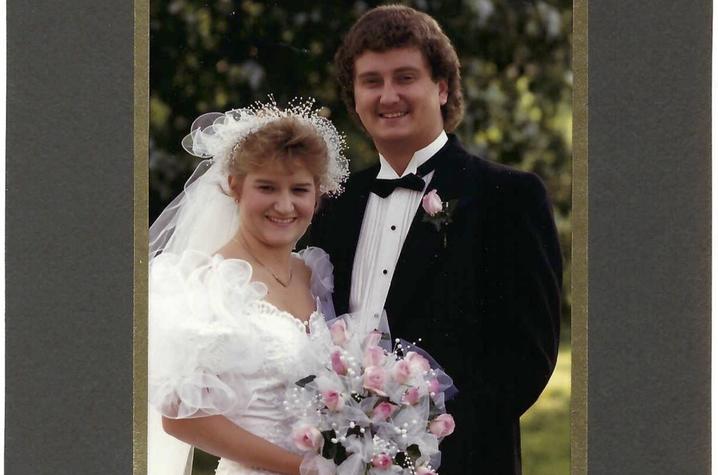
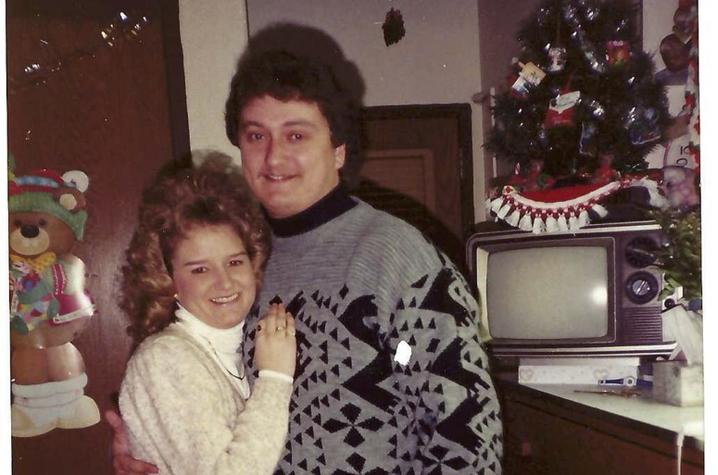
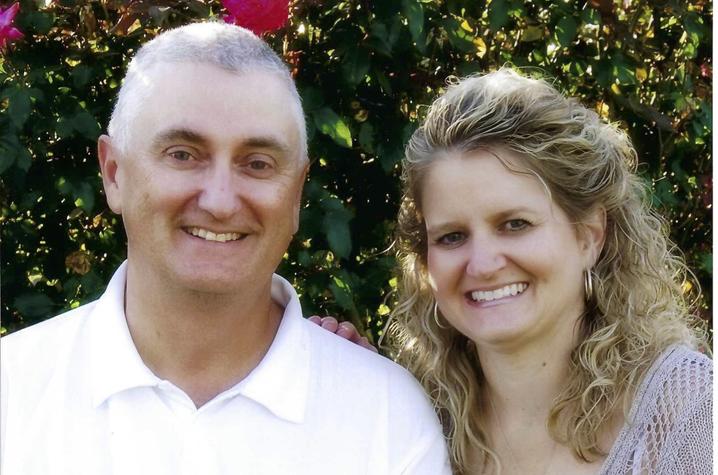
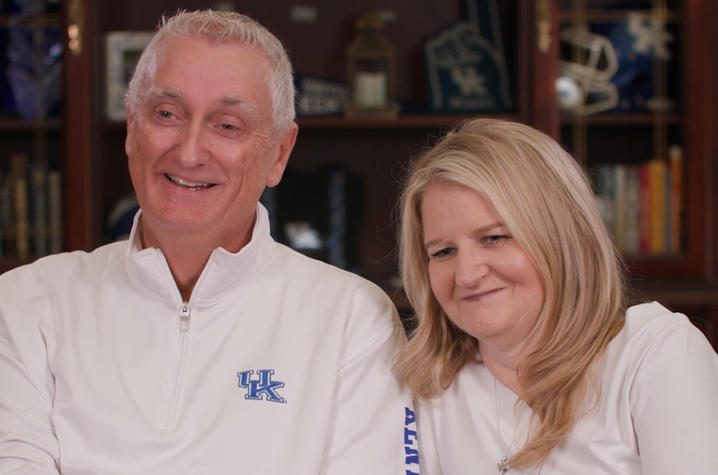
UK HealthCare is the hospitals and clinics of the University of Kentucky. But it is so much more. It is more than 10,000 dedicated health care professionals committed to providing advanced subspecialty care for the most critically injured and ill patients from the Commonwealth and beyond. It also is the home of the state’s only National Cancer Institute (NCI)-designated Comprehensive Cancer Center, a Level IV Neonatal Intensive Care Unit that cares for the tiniest and sickest newborns and the region’s only Level 1 trauma center.
As an academic research institution, we are continuously pursuing the next generation of cures, treatments, protocols and policies. Our discoveries have the potential to change what’s medically possible within our lifetimes. Our educators and thought leaders are transforming the health care landscape as our six health professions colleges teach the next generation of doctors, nurses, pharmacists and other health care professionals, spreading the highest standards of care. UK HealthCare is the power of advanced medicine committed to creating a healthier Kentucky, now and for generations to come.




